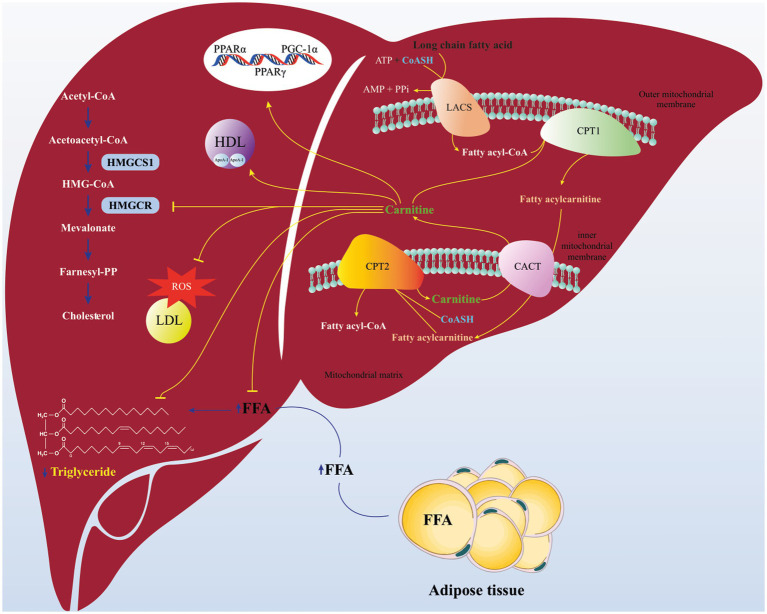Figure 6.
Schematics of proposed pathway for beneficial effects of L-carnitine on lipid parameters. L-carnitine enhanced the mitochondrial oxidation (beta-oxidation) of long Chain-Acyl CoA. Carnitine can reduce the availability of free fatty acids (FFAs), diminish conversion of FFAs to triglycerides. L-carnitine can affect cholesterol synthesis pathway (mevalonate pathway) via inhibition of β-hydroxy β-methylglutaryl (HMG)-CoA reductase activity. Carnitine can improve lipid profile by modifying the expression of genes associated with lipid metabolism signaling including peroxisome proliferator activated receptor (PPAR α & γ), and peroxisome proliferator-activated receptor γ coactivator 1α (PGC-1α). Also, carnitine can protect LDLs from oxidative stress and promotes the synthesis of HDL via increment in Apo-A1 level. Carnitine Acylcarnitine translocase (CACT); Carnitine palmitoyi transferase II (CPT2); Carnitine palmitoyi transferase I (CPT1); Long Acyl-CoA synthetase (LACS).

